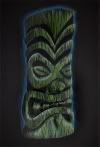Dr. Benway's Office
Monday, June 25, 2007
Thursday, June 21, 2007
Don't buy antibacterial soap!
I read about the potential dangers of triclosan back in nursing school. I have avoided antibacterial soaps ever since and I preach the word to anyone who will listen. Now major scientific publications are cautioning against their use. Here's why you should avoid products labeled as antibacterial or containing triclosan:
1) Soaps and detergents are naturally antibacterial. Germ-killing additives are unnecessary and numerous studies have shown they do little or nothing. Why are such soaps even sold? The antibacterial label is a marketing gimmick that feeds on our phobia of germs. One manufacturer's soap sold so well that competitors followed suit, and soon grocery store shelves were full of the familiar orange-colored hand soaps, dish detergents, etc.
2) Efforts are underway to ban triclosan, the antibacterial additive used in a startling array of consumer products. Classified as a pesticide by the EPA, triclosan carries numerous health risks. Chemically related to dioxin, it is a suspected carcinogen. It belongs to a class of chemicals that can accumulate to toxic levels in your body fat and damage every organ and system in your body. Triclosan also ends up in ground water, where it is thought to kill beneficial algae and disrupt ecosystems.
3) There is growing evidence that use of antibacterial products helps to create drug-resistant superbacteria. These germs cause highly lethal new forms of tuberculosis, pneumonia, salmonella, meningitis and other diseases that do no respond to antibiotic treatment.
I urge everyone to read labels and avoid buying any product containing triclosan. It is used in soaps and detergents, toothpastes, makeup, deodorants, acne medications and other toiletries. It is also sold under the trade name Microban, which is used to treat toys, clothing, furniture, appliances and other household products. You do not need this stuff in your house. It has no proven benefit and it may actually hurt you and your family.
See also:
Antibacterial Products May Do More Harm Than Good
When chlorine + antimicrobials = unintended consequences
Problems with Triclosan and Antibacterial Products
1) Soaps and detergents are naturally antibacterial. Germ-killing additives are unnecessary and numerous studies have shown they do little or nothing. Why are such soaps even sold? The antibacterial label is a marketing gimmick that feeds on our phobia of germs. One manufacturer's soap sold so well that competitors followed suit, and soon grocery store shelves were full of the familiar orange-colored hand soaps, dish detergents, etc.
2) Efforts are underway to ban triclosan, the antibacterial additive used in a startling array of consumer products. Classified as a pesticide by the EPA, triclosan carries numerous health risks. Chemically related to dioxin, it is a suspected carcinogen. It belongs to a class of chemicals that can accumulate to toxic levels in your body fat and damage every organ and system in your body. Triclosan also ends up in ground water, where it is thought to kill beneficial algae and disrupt ecosystems.
3) There is growing evidence that use of antibacterial products helps to create drug-resistant superbacteria. These germs cause highly lethal new forms of tuberculosis, pneumonia, salmonella, meningitis and other diseases that do no respond to antibiotic treatment.
I urge everyone to read labels and avoid buying any product containing triclosan. It is used in soaps and detergents, toothpastes, makeup, deodorants, acne medications and other toiletries. It is also sold under the trade name Microban, which is used to treat toys, clothing, furniture, appliances and other household products. You do not need this stuff in your house. It has no proven benefit and it may actually hurt you and your family.
See also:
Antibacterial Products May Do More Harm Than Good
When chlorine + antimicrobials = unintended consequences
Problems with Triclosan and Antibacterial Products
